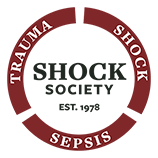- Home
- About
- Awards
- Conference
- Membership
- Resources
- Education
- Journal
- Foundation
Faculty Research AwardFaculty Research Award (Deadline: February 28, 2026)
Eligibility Requirements:
Ineligible individuals:
Application Package: The application must use 11 or 12 point font (Times, Times New Roman, or Arial). Margins consistent with NIH application continuation pages are appropriate. The application must include sections 1 through 13 below. 1. Cover letter. Include a statement of meeting the eligibility requirements, the title of the project, names of research mentors, and commitment to submit an abstract and present at the Shock Society Annual Meeting for the three years after receiving the award. 2. Candidate statement (1 page). Include a demonstration of research interest and/or experience in the area of the pathophysiology of trauma, hemorrhage, shock, or sepsis. Research approaches may vary from basic cellular responses to clinical outcomes, including translational research and clinical application. Describe the commitment to a career in research related to trauma and shock, and establish the potential to develop into an independent investigator. 3. Curriculum vitae. Include relevant educational and professional experience, and lists of awards and honors, abstract presentations, and publications. 4. Research plan (4 pages). Describe the research plan and the use of a basic or clinical science approach towards furthering knowledge in the areas of trauma, shock, and/or sepsis. Include the following: Specific Aim(s), Background and Significance, Preliminary Studies (if available), Research Design and Methods, References. Provide complete citations, including all authors and titles. The reference page is not counted towards the page limit. 5. Environment (1/4 page). Describe the research environment, including the applicant's research space, available equipment, and secretarial support. 6. Budget (1/4 page). Describe how the budget will be allocated for salary, supplies, equipment, and travel. Salary support is allowed for technical assistance but not for the applicant's or the mentor's salary. Time commitment should be commensurate with salary status. Costs to support graduate students or their stipends are not allowed. Costs for secretarial services and administrative services (indirect costs) are not allowed. All costs must be directly related to the proposed research. Travel associated with research training is also permitted. $1,000 of the award (each year for three years) should be included for traveling to the Shock Society Annual Meeting. 7. Training in the responsible conduct of research. Describe plans to receive instruction on how to conduct research responsibly. These plans must detail the proposed subject matter, format, frequency, and duration of instruction. No award will be made if an application lacks this component. 8. Women, minorities, and children in research involving human subjects. Describe the use of human subjects, which must be compatible with NIH guidelines. Appropriate institutional approval must be obtained prior to award. 9. Vertebrate animals. Describe the use of vertebrate animals, which must be compatible with NIH guidelines. Appropriate institutional approval must be obtained prior to award. 10. Biohazards. Appropriate institutional approval must be obtained prior to award. 11. Environment and institutional commitment. The sponsoring institution must provide a statement to document the level of commitment to the candidate's development into a productive, independent investigator. This must include an indication of support for candidate's proposed level of effort related to this award, commitment to release time, as well as the availability of support during the award period. These resources may be provided by the mentor, the institution, or both. 12. Letters of Department Chair – The letter must indicate institutional support and a guarantee of at least 50% protected time to pursue the aims of the application. – The letter must indicate that the applicant is currently with no more than $100,000/year of research funding from all external sources outside his/her institution. 13. Letters of mentors. At least two letters from mentors addressing the candidate's potential for a research career must be included as part of the application. The mentor's letter should include information to describe the candidate's research plan and the nature of the supervision that will occur during the proposed award period. One of the mentors must be an active Shock member. The mentors’ biosketch should be submitted in the 5-page NIH format that includes currently funded research, along with the recommendation letter. |
